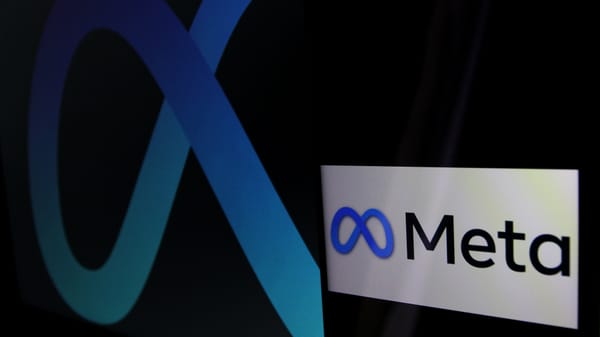Meta unspools Threads
Instagram chief Adam Mosseri on the company's big new swing at Twitter
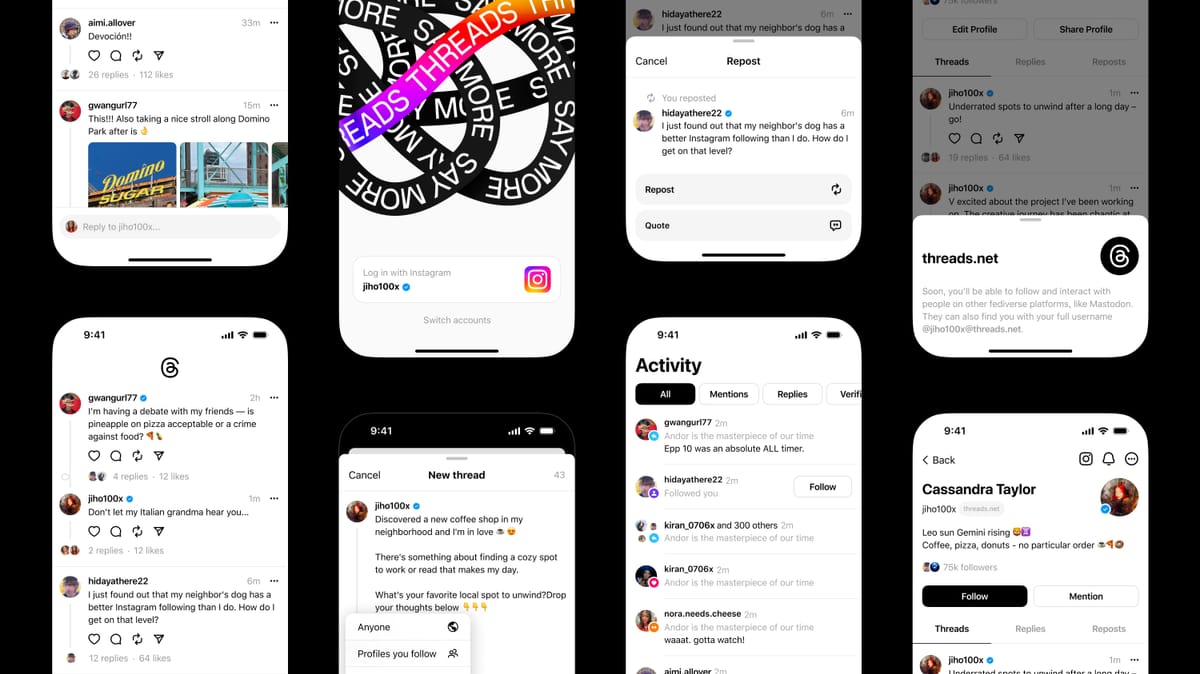
Programming note: I really was trying to take a vacation, but this felt like it was worth the one-day interruption. We know you’re all waiting for more from us on what’s going on at Twitter at the moment — on that front, all we can say right now is to stay tuned.
I.
In early December, when word first leaked out that Meta was considering new ways to challenge Twitter, I messaged Adam Mosseri.
We were then two months into Elon Musk’s ownership of Twitter, and it was clear that the social network I depended on the most was beginning to break. For my own sake, it felt important that something like Twitter continue to exist — a place to share news, jokes, and other short snippets of writing, in a chatty public place that gave me a sense of the daily conversation.
And so I told Mosseri that I hoped Meta would go through with it.
On one hand, the history of Facebook and Instagram offer plenty of reasons why the company might be poorly suited to run Twitter’s successor as well. There’s the litany of failures over the years related to content moderation, of course. And there’s the reality that, should Meta succeed here, it will have expanded into one of the last frontiers of social networking in which it was not already dominant. Generally I want Big Tech to be less consolidated, not more.
On the other, though, the past few months have shown Instagram to be vastly superior at content moderation than Twitter 2.0 is. And Meta ultimately decided to build its Twitter competitor in a decentralized way — setting it up to be interoperable with Mastodon and whatever else might get built in the future on Mastodon. Ultimately, Mosseri told me in an interview today, the company hopes to let you take your audience with you when you leave the new app. That’s a level of freedom the users of Facebook or Instagram — or really any other big social app — have never had.
In December, Mosseri told me he was torn about whether to move forward with a new Twitter challenger. New social apps are much likelier to fail than to succeed, and Twitter already had such a devoted user base.
With every passing day, though, that latter statement becomes less true. The past week’s astonishingly foolish decision by Elon Musk to limit free users to viewing 600 posts a day — enough for maybe 20 minutes of scrolling, maybe less — has sent a fresh wave of Twitter users looking for alternatives.
That brings us to today, when Meta is releasing the first version of its new app, Threads.
II.
I’ve spent the past few hours testing Threads, which will begin to land in app stores just as this newsletter goes out. Like many of the other Twitter rivals that have launched in the past few months, it’s a fairly bare-bones interpretation of a text-based messaging app.
“Our hope is that Threads is an open, friendly place for public conversations. particularly focused on creators,” Mosseri told me and my podcast co-host, Kevin Roose, in an interview Wednesday afternoon. (The full conversation is included in a special episode of Hard Fork that drops tomorrow.)
It opens to a simple feed similar to Twitter’s home timeline. Unlike Twitter’s, Threads contains recommended posts from around the network — at this stage, a useful way of what’s happening on the app. For now, there’s no way to view a feed of just the users that you follow. (There are also no hashtags, no edit buttons, and no way to search for anything other than user handles.)
You log in with your Instagram handle. If you like, you can import your Instagram bio and photo with a single click as well. You can choose to follow anyone on Threads who you already follow on Instagram; as your Instagram follows join Threads, you’ll follow them automatically as well.
It’s nothing fancy, but it’s already much easier than following people on Mastodon, the original social app built on the ActivityPub protocol. To follow someone on Mastodon, you have to know their server and complete username (I’m @caseynewton@mastodon.social.) On Threads, it’s as easy as typing in their Instagram handle. (I’m @crumbler.) It’s a small thing — but, I suspect, one that could make a big difference.
From there … it’s basically just Twitter. You type your sentences and add a photo if you like. You post your … Stitches? Strings? Threats? … into the feed. You check your notifications in a tab represented by a heart emoji. You can search for other users. You can reply.
It’s basically Twitter in 2010, in other words, with one nice feature that has been added since then: the quote-tweet, which Mastodon has avoided adding but turns out (I think) to be an essential feature of the modern-day Twitter experience.
Had Meta launched this app in 2019, it seems safe to say, everyone would have rolled their eyes. Its big new feature is … logging in with Instagram? Come on.
By the standards of Twitter 2.0, though, it can feel like a miracle. Reading unlimited posts for free? On a robust network that basically never goes down? That is monitored by a robust team of content moderators, following a stable set of community guidelines?
When the competition is an app where “cisgender” is considered a slur, Threads has an easy time standing out as an oasis of calm and civility.
Why not just incorporate text into the core Instagram app, though?
As it turns out, Mosseri had his team give that a shot. But everything they tried felt forced, and out of place. The thing that makes Twitter distinctive, Mosseri said, is that replies are given the same visual priority as the original posts. In a world where every other social network buries comments underneath posts, Twitter elevates them. And that encourages people to participate in discussions.
“The post-and-comment model is great,” Mosseri said. “But it really does not support public discourse nearly as well as the tweet-and-reply model. Elevating the reply to the same level as the original post allows for much more robust, diverse discourse. Which is part of the reason we didn’t just try to shove this thing into the feed on Instagram or a separate tab.”
Another feature that could spark more discussions: Instagram’s network isn’t starting from scratch. It will build on the company’s own network yes. But over time, Threads will also let you follow discussions on Mastodon and potentially other services that adopt ActivityPub. Tumblr and WordPress, which share a parent company, have both said they will support publishing on the protocol. In a year or two, then, you might read WordPress blog posts in Threads — or read Threads posts in your favorite Mastodon client.
It’s an almost unthinkable reversal from Meta’s extremely lucrative walled-garden strategy, which it has employed for its entire history as a company. But Mosseri told me that decentralization is the future of social networks — even if it means that someday a disgruntled Threads user will be able to take the following they build in the app to another network, never to return.
“There definitely are trade offs,” Mosseri said. “You're giving up some control. But there are benefits. I do think over time, it's going to be a more compelling value proposition that other apps are going to offer. And I think that should attract more creative talent over the long run.”
One big question about Threads is how content moderation will work on it and other decentralized social networks. There’s a risk that posts that would never be allowed on Instagram might show up on Threads anyway, if it came from another server using the ActivityPub protocol that Instagram doesn’t control.
For now, Threads only shows posts from its own server, Mosseri said, and everything will be governed by Instagram’s existing community standards. But ActivityPub actually lets services like Threads choose to block some forms of content before they make it onto clients like Threads, Mosseri said. He’s optimistic that this will keep most of the worst problems in content moderation in check.
Where’s the money in all this for Meta? Likely ads, though as is typically the case when Meta launches a new product, it will be ad-free to start as the company explores whether it can attract enough users to make it a meaningful business opportunity. “Honestly, we're not focused on it at all right now,” Mosseri said.
The more pressing concern at the moment is to launch Threads in all the countries where Meta wants to. It won’t be available in the European Union to launch as Meta works to ensure that Threads complies with the EU’s new data privacy regulations.
“That's just going to take a while, unfortunately — and I'm particularly frustrated about this point, because I've been living outside of the US for a year now,” said Mosseri, who has been working from London. “I've been on a total kick with my teams about stop launching things in only a couple countries, and not in other countries. … But in this case, it was either we wait on on the EU, or delay the launch by many, many many months. And I was worried that our window would close, because timing is important.”
III.
The early hours of Threads have indeed been cheerful and light on drama. But that’s what you would expect from a user base that consists primarily of huge celebrities, influencers, and Instagram employees.
The real question is whether fusty old Meta can cultivate a space that feels like a party — a place you would choose to hang out over the alternatives.
This is the thing that Bluesky, another decentralized Twitter clone built on a different protocol, got right. The software is as basic as it could be. But the people who use the invitation-only app, for the most part, seem to be having a good time. Its team has wisely slowed the pace of invitations in hopes it can retain the goofy, shitposting ethos that has defined it so far, and that has kept me coming back every day to see what people are talking about.
The challenge for Meta is that it’s not clear to what extent the vibe on Threads will be anything it can control. There is clearly huge anticipation for the app in the media, which has covered every twist and turn of its planned launch obsessively. But you cannot build a social network out of reporters alone. And while the debut roster of Threads users is impressive — it includes Jennifer Lopez, Shakira, and Karlie Kloss — they’ll only stick around as long as they think their posts are finding an audience.
The company seems clear-eyed about that reality.
“It's not nearly as hard to get a bunch of people to try something as it to build something a bunch of people want to keep using over time,” Mosseri said.
Only a few dozen people are working on Threads at the moment — a relatively small team by Meta standards. At the same time, that might be the biggest team of anyone currently working on true Twitter competitor in the United States. If the Threads team can push out new features and improvements to the user experience faster than its rivals — which feels like a low bar — it could become the one to beat. (Two obvious places to start: working embeds that let me put Those Good Threads here in the newsletter, and one-tap cross-posting from Threads to Instagram stories, with links inserted in the stories to aid in discovery.)
And if nothing else, Threads seems likely to annoy Elon Musk into making even worse mistakes he has so far. I wouldn’t even be surprised if he challenged Mosseri to a martial arts fight, as he previously challenged Mark Zuckerberg.
Mosseri, for his part, said he would rather sit that part out.
“That’s between those guys,” Mosseri laughed. When we spoke, the launch of Threads was mere hours away, and he was late for a meeting. “I’m gonna focus on getting this thing out the door, making sure that it’s fast, and works really well. And I’ll let them engage on the rest.”

On the podcast this week: Coming Thursday on a special, we-were-supposed-to-be-on-vacation edition of the podcast — our full conversation with Adam Mosseri.
Apple | Spotify | Stitcher | Amazon | Google
Those good tweets
For more good tweets every day, follow Casey’s Instagram stories.
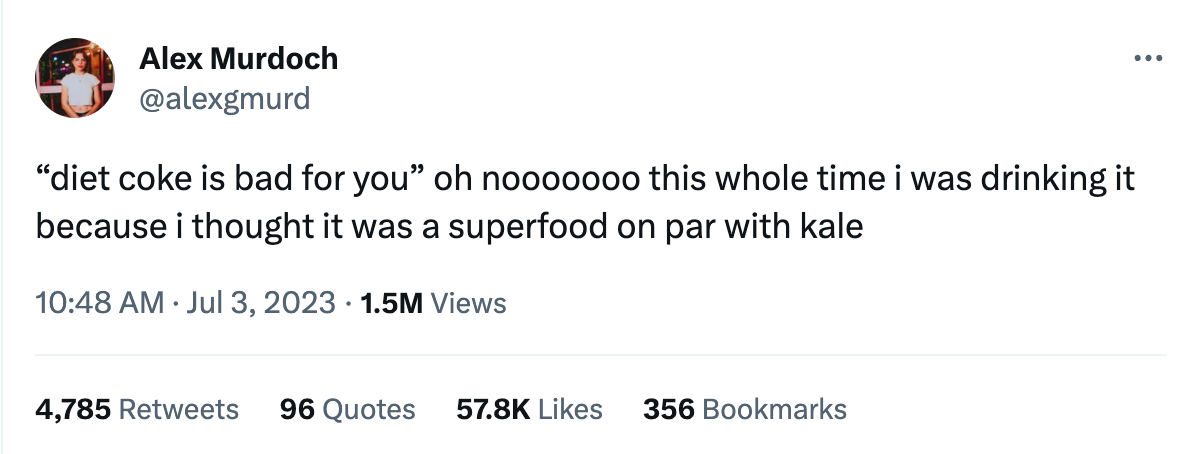
(Link)
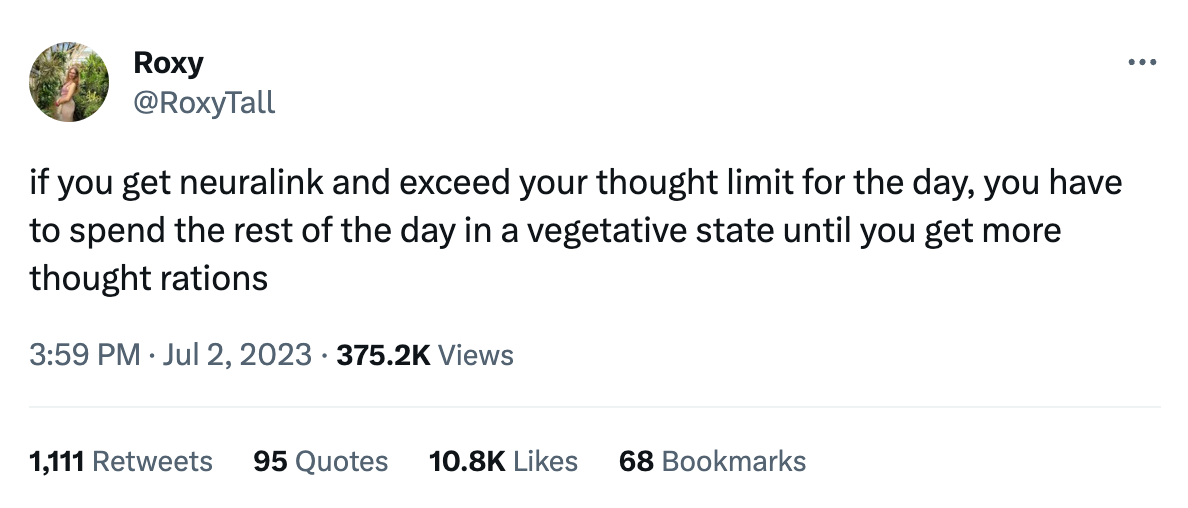
(Link)
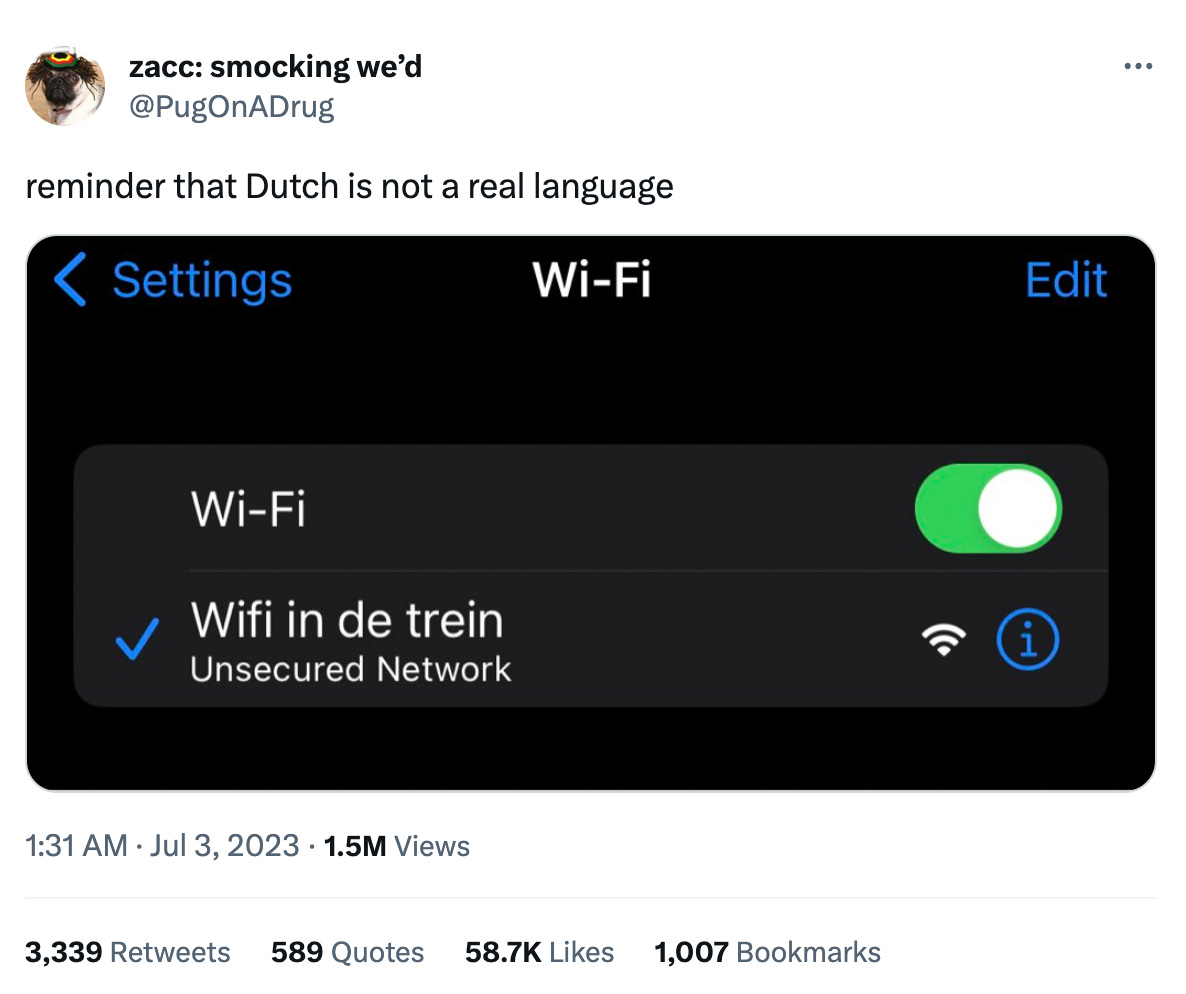
(Link)
Talk to us
Send us tips, comments, questions, and your Threads handle: casey@platformer.news and zoe@platformer.news.




